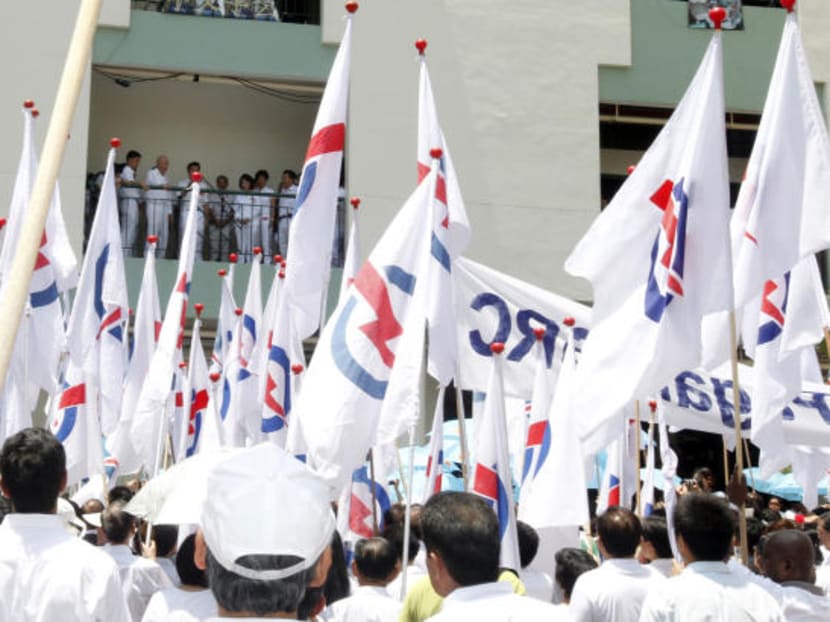PAP could lose ‘control, power over next 15-25 years’
SINGAPORE — The People’s Action Party (PAP) could lose the dominance it currently enjoys in Parliament in 15 years, said prominent businessman Ho Kwon Ping yesterday, adding that the party could completely lose power a decade after that if the history of dominant political parties around the world is anything to go by.

PAP supporters at the Nomination centre at Singapore Chinese Girls School during the 2011 General Election. TODAY file photo
SINGAPORE — The People’s Action Party (PAP) could lose the dominance it currently enjoys in Parliament in 15 years, said prominent businessman Ho Kwon Ping yesterday, adding that the party could completely lose power a decade after that if the history of dominant political parties around the world is anything to go by.
“This is actually not a radical conclusion — almost everyone I informally surveyed broadly agreed with it, but (differed) only in their estimation as to how many years it would take before the PAP would lose an election and how many terms it would stay out of power before bouncing back,” Mr Ho added.
Mr Ho, who is executive chairman of Banyan Tree Holdings and an S R Nathan fellow, raised the scenarios at an Institute of Policy Studies (IPS)-Nathan lecture, where he spoke about politics and governance to an audience comprising about 300 civil servants, students, academics and members of the private sector.
In theory, freak election results, splits in the PAP or a massive loss in legitimacy due to corruption are possible factors that can cause the PAP to lose power, said Mr Ho.
Other factors that could delay or speed up the process include the level of support from elderly voters, “internal rigidity and intrigues” in the PAP cadre system and possible loss of economic competitiveness.
Noting that ruling parties in democracies have “generally floundered” after 50 to 75 years, Mr Ho nonetheless said the PAP is “very likely” to overtake the record of Mexico’s Institutional Revolutionary Party, which lasted 71 years.
This is because the PAP has not exhibited signs of moral exhaustion and an onset of decay as seen in other parties by their middle age, he said.
There is also no evidence to show that corruption has increased in Singapore’s public life, despite a few scandals involving mid-level bureaucrats, said Mr Ho, arguing that Singapore remains exemplary among its neighbours and counterparts in developed countries for its low level of corruption.
Still, the PAP will face considerable challenges after the “very popular” Prime Minister Lee Hsien Loong reaches his 80s, he said.
Mr Ho said the Civil Service must develop its own sense of self, ethos and values as elections become more volatile. This is not to distance itself from the ruling party, he added, but to develop a culture and identity that is robust and resilient.
After Mr Ho’s hour-long speech, he was asked wide-ranging questions that touched on the PAP’s prospects at the next General Election, neutrality of the civil service, as well as income inequality.
On the last issue, Mr Ho noted that workers with lower skills in a digital society tend to be left behind as jobs are wiped out. Any responsible government has to try to mitigate this by equipping such employees with better skills, he said.
He added: “Although there will always be income inequality in all societies, the ethos of egalitarianism is hugely important.
“Because as long as I earn less than you, but ... feel equal to you, so long as you treat me with the same amount of respect, we can have income inequality, but we can (also) have an egalitarian society.”







